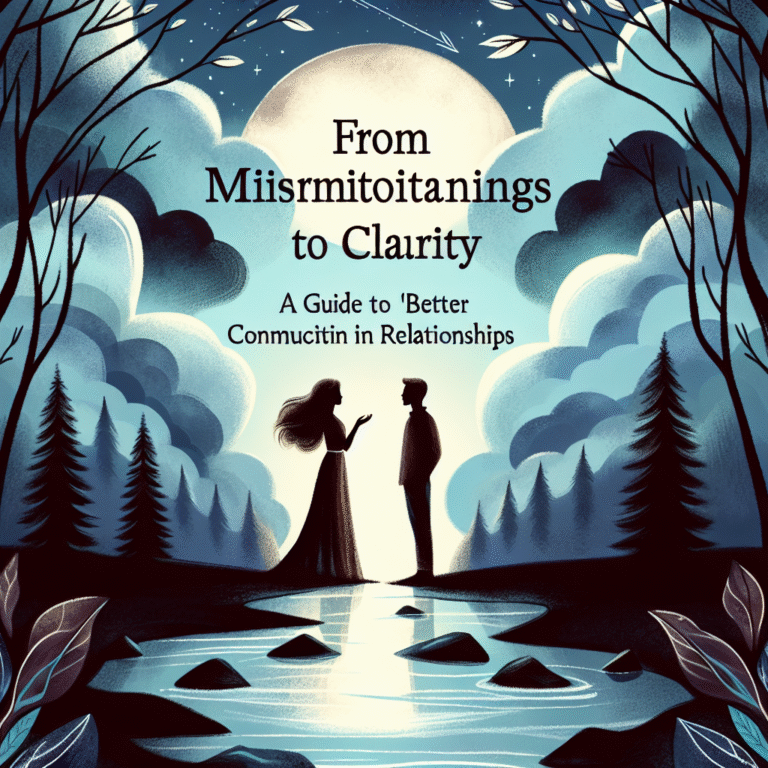Breaking the Cycle: How Behavioral Psychology Tackles the Roots of Depression
Introduction
Imagine walking through a dense fog, where every step feels heavy and laden with doubt. For millions, this fog represents the daily struggle against depression, a mental health condition that can be as debilitating as any physical disease. Now, envision a lifeline—a way to break through that fog. This is where behavioral psychology comes in. In this article, Breaking the Cycle: How Behavioral Psychology Tackles the Roots of Depression, we’ll explore how this powerful approach not only addresses the symptoms of depression but also targets its underlying causes, providing a proven framework for lasting change.
Understanding Depression
The Prevalence of Depression
According to the World Health Organization, over 264 million people worldwide suffer from depression. It is a leading cause of disability and a major contributor to the global burden of disease. But what makes this condition so pervasive?
The Roots of Depression
Understanding the roots of depression is essential in breaking the cycle. Factors such as genetics, environment, and personal experiences intertwine to create a complex web that can lead to depression. Life events, chronic stress, and cognitive patterns all play a role in this intricate picture.
The Psychological Perspective
Behavioral psychology offers insights into how thoughts and behaviors contribute to depression. By reframing negative thought patterns and maladaptive behaviors, individuals can unpack the layers contributing to their depressive state.
Behavioral Psychology: The Theory
Core Principles
Behavioral psychology focuses on learning theory and the idea that all behaviors are acquired through conditioning. This field emphasizes the importance of modifying behaviors to impact feelings positively. Techniques such as Cognitive Behavioral Therapy (CBT) are at the forefront of this approach.
How It Works
In CBT, the belief is that our thoughts influence our feelings, which in turn affect our behaviors. By challenging negative thoughts and replacing them with positive ones, individuals can break the cycle of depression. This is where the magic happens—Breaking the Cycle: How Behavioral Psychology Tackles the Roots of Depression.
Real-World Applications
Case Study 1: Mark’s Journey
Mark, a 29-year-old software engineer, struggled with depression for years, feeling trapped in a cycle of negative thinking. Through CBT, Mark identified patterns of self-criticism that fueled his depressive thoughts. By reframing these thoughts into constructive insights, he gradually transformed his mindset, significantly improving his mental health.
Analysis
Mark’s journey exemplifies how targeted behavioral techniques can effectively address the roots of depression. His case demonstrates the principle that our internal dialogue plays a crucial role in our emotional well-being.
Case Study 2: Lisa’s Transformation
Lisa, a 35-year-old teacher, faced chronic stress and anxiety that morphed into severe depression. Her treatment included behavioral activation, a key component in behavioral psychology. By engaging her in pleasurable activities and social interactions, Lisa broke the inertia of depression, rediscovering joy in her life.
Analysis
Lisa’s story highlights the importance of activity in combating depression. Behavioral activation emphasizes the need to engage in activities that foster enjoyment and fulfillment, thus breaking the cycle of depressive symptoms.
Case Study 3: James and Parenting
James, a father of two, discovered that the stress of parenting triggered his depressive episodes. Through behavioral interventions such as structured routines and mindfulness practices, he learned to manage his stress effectively. By implementing these techniques, he felt more in control and less overwhelmed.
Analysis
James’s case underlines the role of behavioral strategies in developing coping mechanisms for stress, illustrating how behavioral psychology can be tailored to individual circumstances.
Effective Techniques in Behavioral Psychology
Cognitive Restructuring
This technique involves identifying negative thought patterns and actively challenging them. By reframing these thoughts, individuals can significantly alter their emotional responses, thereby breaking free from depression’s grip.
Exposure Therapy
Often used for anxiety disorders, exposure therapy can also be effective for depression. Gradually exposing oneself to feared situations can alleviate distress and foster resilience.
Mindfulness and Relaxation Techniques
Incorporating mindfulness, meditation, and relaxation exercises into one’s routine can help in grounding and centering thoughts, which alleviates depressive symptoms.
Goal Setting
Setting realistic and achievable goals can significantly boost one’s mood and sense of accomplishment, paving the way to break the cycle of depression.
The Power of Support Networks
Community and Connection
A growing body of research emphasizes the importance of social support in combating depression. Peer support groups, family involvement, and community engagement play vital roles in mental health recovery.
Case Study 4: The Support Group
Maria found solace and hope in a local support group for individuals dealing with depression. Through sharing experiences and learning coping mechanisms from others, she felt empowered to take charge of her mental health.
Analysis
Maria’s story accentuates how community and shared experiences can provide critical emotional support, showcasing the collaborative nature of behavioral psychology.
Breaking the Stigma
Conversations That Matter
Discussing mental health openly helps dismantle the stigma surrounding depression. By encouraging conversations, we can foster understanding and empathy, vital components in breaking the cycle of silence surrounding mental illnesses.
The Role of Education
Educating oneself and others about the psychological aspects of depression can lead to better resources and strategies, ultimately contributing to breaking the cycle of depression in society.
Conclusion
In our exploration of Breaking the Cycle: How Behavioral Psychology Tackles the Roots of Depression, we have witnessed the profound impact that understanding and addressing the underlying causes of depression can have on individuals’ lives. From reframing negative thoughts to engaging in supportive communities, the tools offered by behavioral psychology can empower individuals to reclaim their happiness. The journey toward mental wellness is not a solitary one; it’s a community endeavor that involves support, education, and actionable steps.
Whether you are struggling with depression or supporting someone who is, remember: change is possible. Each step taken is a step toward breaking the cycle—toward a life filled with hope and joy.
FAQs
1. What is the role of behavioral psychology in treating depression?
Behavioral psychology focuses on altering negative thought patterns and behaviors. Techniques like CBT are designed to challenge these thoughts, providing tools to manage and alleviate depressive symptoms effectively.
2. Can cognitive behavioral therapy really help with depression?
Yes, cognitive behavioral therapy has been shown to be effective in treating depression by helping individuals recognize and restructure negative thoughts associated with their mood.
3. How long does it take to see results from behavioral therapy?
The timeline varies among individuals. Many people begin to notice improvements in their mood and thought patterns within a few weeks, but sustained change often requires ongoing effort and practice.
4. Is it necessary to combine medication with behavioral psychology treatments?
While many people find success with behavioral therapies alone, others may benefit from a combined approach that includes medication. It is crucial to consult a mental health professional to find the best treatment plan.
5. What are simple steps to take if someone feels depressed?
Engaging in physical activity, maintaining a healthy diet, fostering social connections, and exploring therapist support can all contribute to managing depression effectively.















